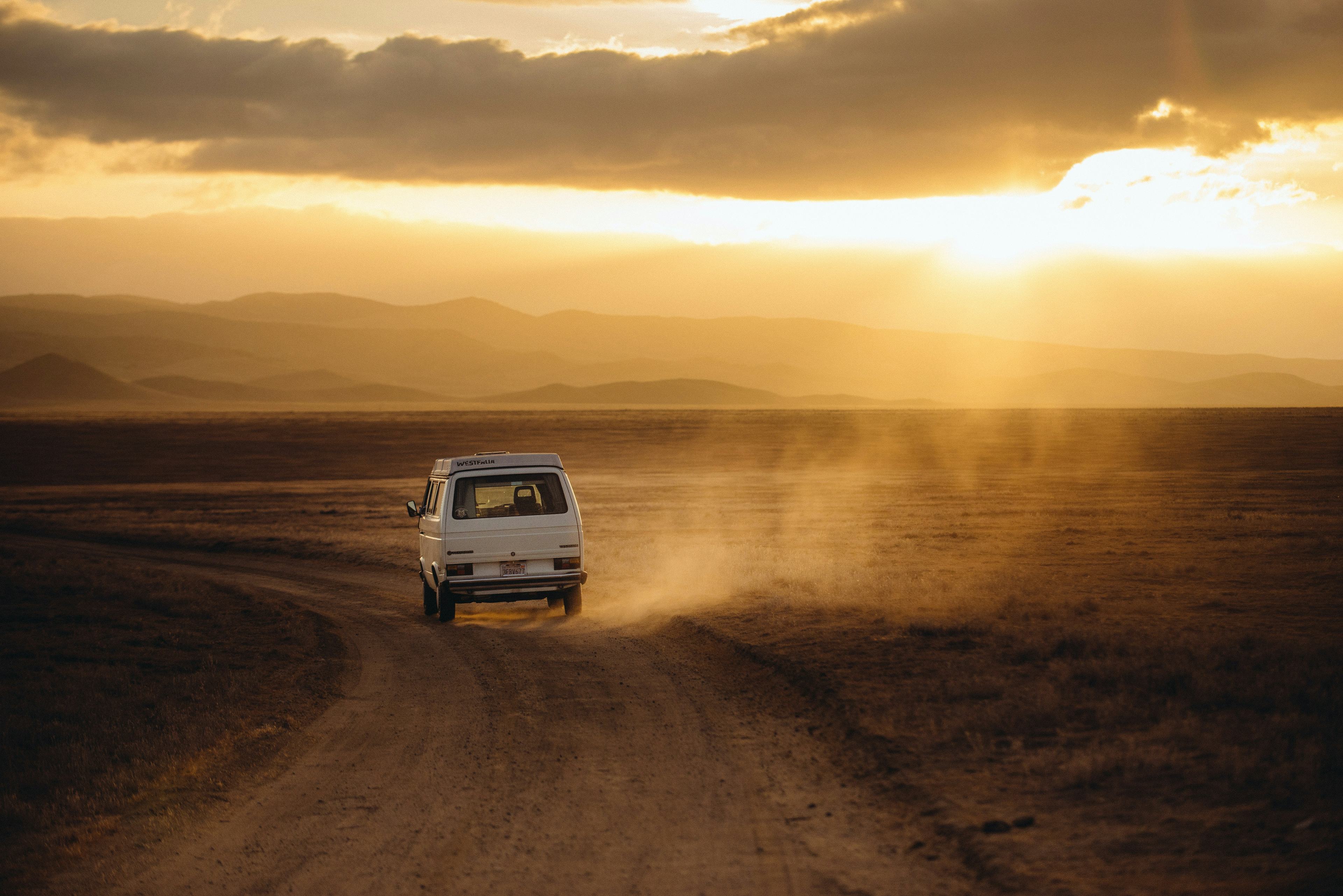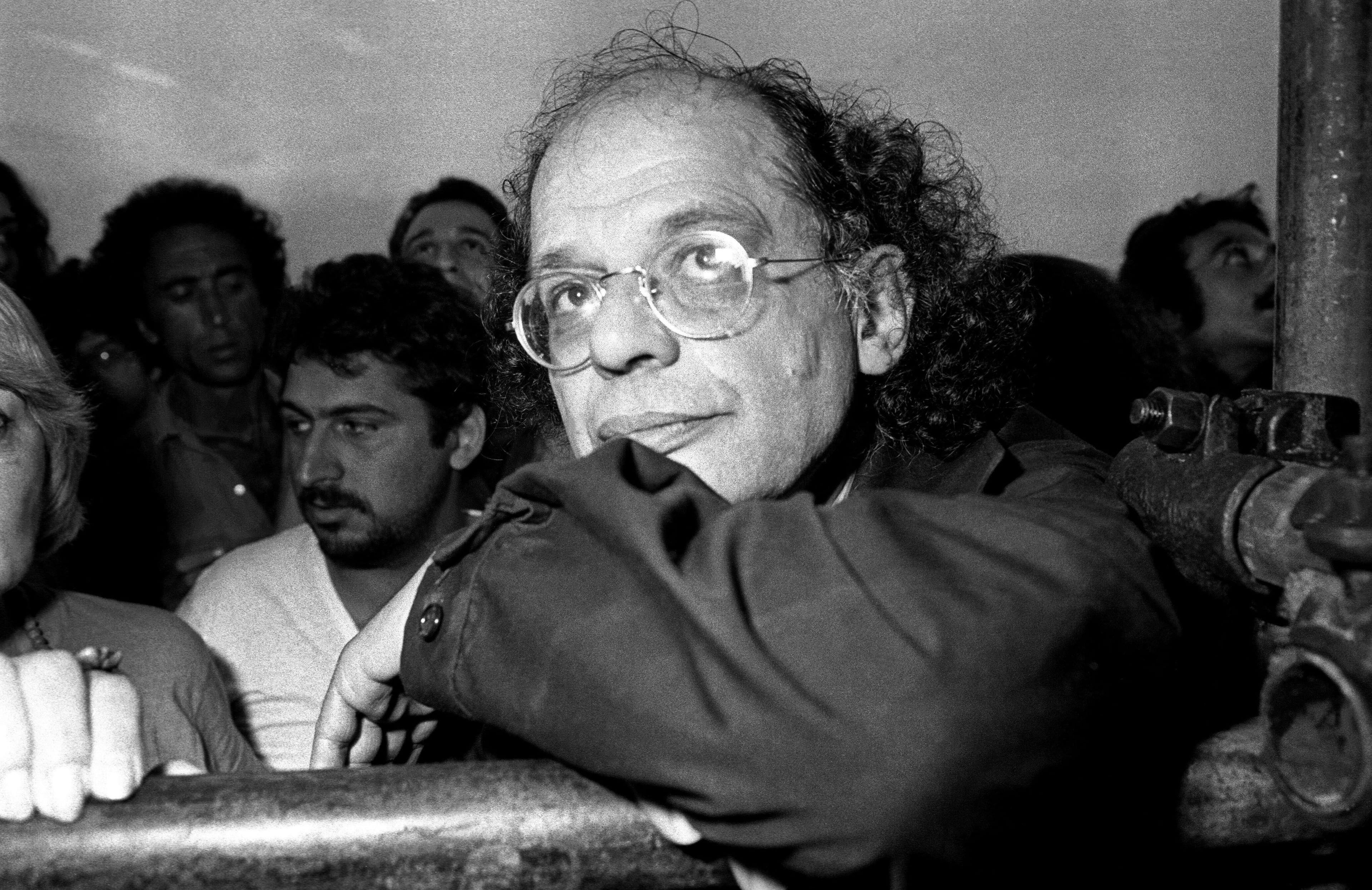An Ode to Starlight Theater in Terlingua, Texas
The west texas 'ghost' town of Terlingua is home to a treasure.
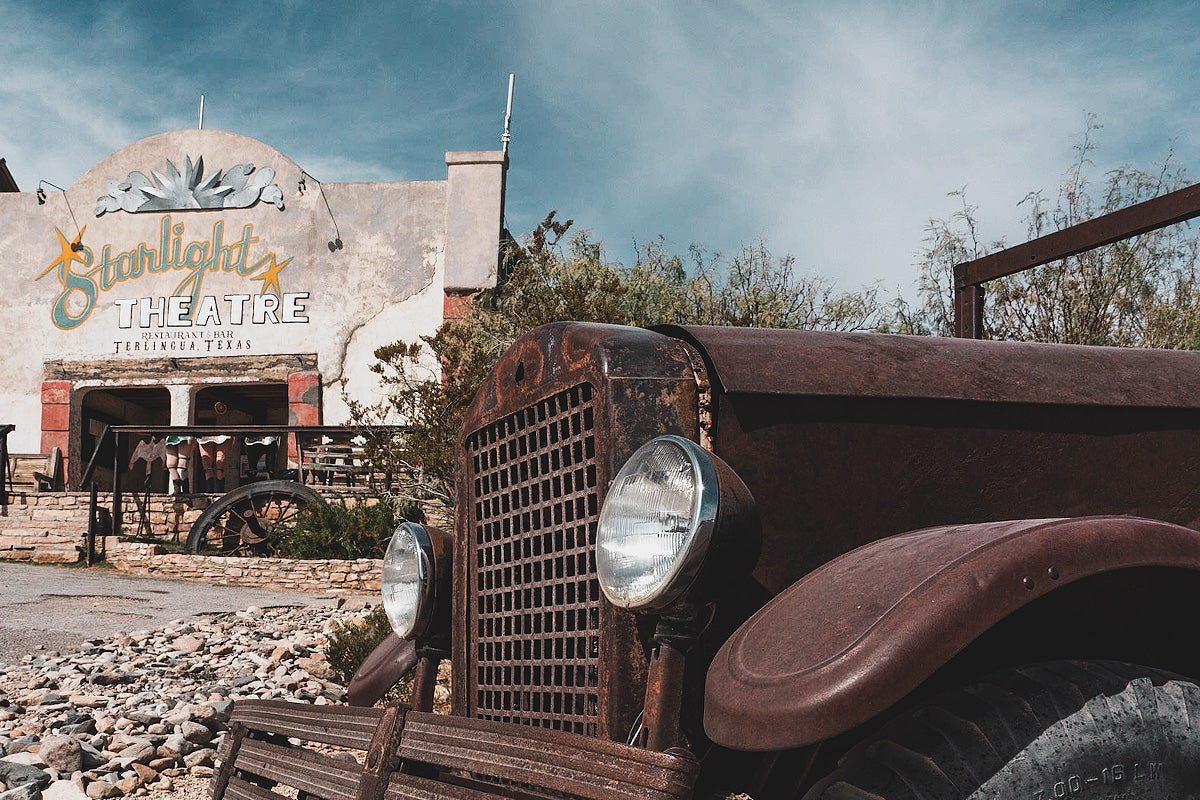
Getting to Big Bend National Park is a long and tiring journey for almost everyone. Once you leave civilization, there’s still hours and hours of driving, south into a void of creosote and dust and space. And at the end of it all, there’s Terlingua. For most visitors it’s a pair of gas pumps, a rock shop, some longhorns napping in the sun under the weight of their crowns. But for those who call Terlingua home, this tiny settlement–a mining town born from the dust a little over a hundred years ago–is a world of its own.
For the locals, there’s not a lot to do in the Big Bend other than drinking and looking at the sky. By “drinking,” sometimes I mean sotol or tequila–the desert itself, roasted, buried, made liquor–but mostly I mean beer. By “beer,” I mean the cheap stuff. Most long afternoons on the river and late nights at the bar take on its best qualities: effervescent, filling, suspended in amber.
You can drink beer anywhere in Terlingua, but there’s only one Porch. The Porch frames the Starlight Theatre, a bustling restaurant and bar. A long line of dusty benches faces the Chisos Mountains, the local equivalent of a big city skyline. Most nights there’s music and people and dogs, mingling together, commiserating, taking in the sunset.
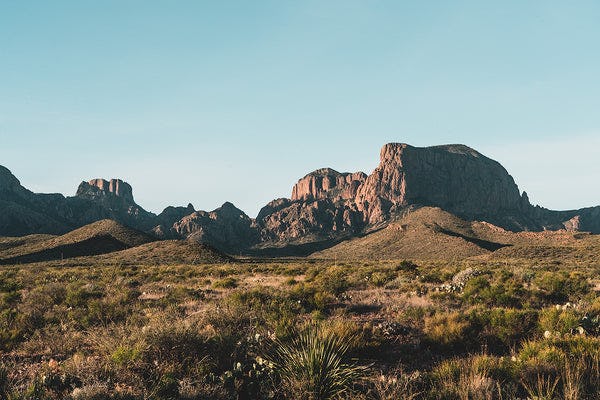
Some would say the Porch is the heart of Terlingua. You can just show up, and your friends will already be there. If your friends aren’t there, you’ll make new ones in a matter of minutes. You can go there straight from the river, covered in mud. You can go there after a ride and hitch your horse out front. You can get hitched in the park and then come by for a toast in your wedding dress.
Before the Starlight was a bar, the Porch was still a place to sit, even when Terlingua was nowhere. And before the Porch was the Porch, there were other porches, but their memories have been scattered. In Terlingua, there has been a porch since time immemorial–a place to take your six pack and sit awhile, waiting for the world to pass by.
I find beer cans out in the desert all the time, the vintage kind with pull tabs. They’re the remains of a hundred years’ worth of sitting, drinking, and bullshitting, of watching the colors play in the mountains as the sun goes down.
The contemporary Porch still maintains some of the magic of porches gone by: music, good conversation, loose dogs. It’s hard to pin down exactly what makes Terlingua Terlingua, but those three things are a fine start.
Officially, there are no dogs allowed on the Porch. In reality, dogs run the whole scene. My dog–a Juárez perro callejero who is still mostly feral–has learned how to break out of the house and take himself to the Porch, where he promenades as Terlingua’s unofficial greeter.
To be a Porch dog is a spiritual calling. Not all dogs have the temperament for it, and if they weren’t raised on the Porch, they may never understand Terlingua’s intricate canine social world. There are no leashes, and sometimes no masters, but there’s a hierarchy, and there’ll be trouble if you don’t respect it.
For the right dogs, it’s paradise. Before the health inspector came to visit Terlingua more frequently, the doors of the Starlight would open at closing time, and the dogs would serve as the cleaning crew–scarfing up fries, abandoned chicken fingers, splatters of bacon grease.
For dogs and humans alike, the Porch is a stage: It’s a place you can pretend you’re something you’re not. You can walk tall and proud in boots you’d never normally wear and tell stories that never happened.
These are things I’ve come to know from spending almost a decade of my life on a rickety bench facing the Chisos. I have cried there, laughed there, puked there. I have fallen in love there, more than once.
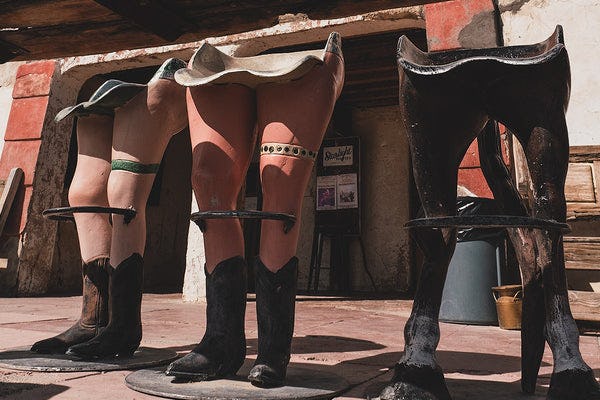
In the past few years there’s been a lot of hand-wringing over a Porch culture that’s going extinct. As the tourism industry booms, the firebrands who came here in the ’70s and ’80s are passing away–the young guns, in a world of $350-a-night vacation rentals, can’t afford to replace them.
If you’re bold enough to call yourself a Big Bend local, I think the antidote to these worries is listening, and respecting those who came before. On a good night at the Porch, there are a few hundred years of collective experience: boatmen, park rangers, lawmen, outlaws, the descendents of people who have been here for thousands of years.
If you listen, you’ll learn something, even if that something isn’t true. Drinking stories are a bit like dreams in that they are never as vivid in the retelling, but Porch stories are their own genre.
I was an eyewitness to a canonical Porch story–one night, the musician didn’t show up. Everyone on the Porch was confused. He loved playing Terlingua; he was a crowd favorite.
The next night, the story emerged: after a boozy afternoon on the river with friends, he missed the takeout. The water carried him past the end of a laid-back, beginner-friendly stretch into a 21-mile odyssey that included the Rock Slide, a mazelike Class III-IV rapid that can be tricky for anyone on the wrong day. He lived to tell the tale–on the Porch, of course.
Once in a while, names the wider world would recognize become Porch stories: the time Ann Richards ran the river with impeccable hair and makeup; the time Sam Shepard played piano in costume, nearly anonymous; the time Willie Nelson came through Lajitas to film an intimate set.
Last night I had a good conversation with Crazy Angie, the first person to run the Starlight. She’ll tell you it was her mother who first called her crazy, but she grew into the name as she tried to make a living in the Big Bend–eventually, by trying to turn a crumbling ruin into a successful bar and restaurant.
Originally the Porch was meant as a place locals could come, pick some tunes, and make a little money; inside the Starlight, monster centipedes ran rampant, sometimes the dancefloor flooded, cracks in the wall were covered with artwork.

Even in the relatively short period of time I’ve lived here, the Porch has changed. Now it’s a tourist attraction, a place where there’s a line out the door for tables almost every night, a line of people who–40 years ago–wouldn’t have set foot in a dusty, scrappy town like Terlingua, where phones have never worked right and there’s no showers unless it rains.
Now there’s wifi, flat-screen TVs, bachelor parties, Instagram tags. The contemporary Starlight isn’t like it used to be, but the Porch has held on to some of its primordial magic, with a few characters swapped out–there’s new dogs, new fiddlers, new elders swapping stories.
“The Porch will always be,” Angie told me. “It goes through changes, but it will always be.”
Read more like this



